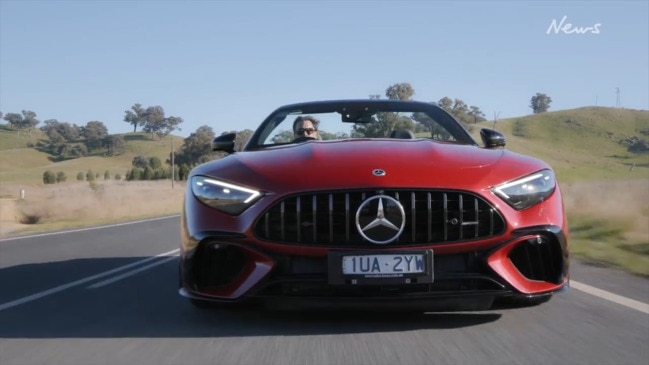Mercedes-Benz wins protracted court case against dealers over switch to agency model
The German car giant has won its protracted and brutal court case against some of its local car dealers, possibly opening the door to a move that could up-end the dealership model.

Mercedes-Benz has won its protracted and brutal court case against some of its local car dealers after the Federal Court ruled in favour of its decision to switch to an agency model, possibly opening the door for other carmakers to follow in a move that could up-end the dealership industry.
The court has found that there was no unconscionable conduct by Mercedes-Benz in the treatment of the Australian car dealers.
In a decision handed down by Federal Court judge Jonathan Beach late on Wednesday, he found that Mercedes-Benz could enforce its non-renewal of contracts with the car dealers and could change the business model to one of an agency model.
The proceedings against Mercedes-Benz commenced in October 2021, by 38 of the then 49 dealers operating Mercedes-Benz in Australia, who were angered by the new business model that the German carmaker wanted to introduce into Australia.
Justice Beach found some of the car dealers’ claims to be exaggerated, although he also had some criticism for Mercedes-Benz and the way it treated its dealers as it prepared to present to them a completely new model by which they would sell Mercedes-Benz cars in their showrooms and dealerships.
However, Justice Beach ruled in his Judgement that the applicants in the trial, the car dealers, did not prove that Mercedes-Benz acted in an unconscionable manner.
“But none of this conduct together with the other conduct and circumstances makes out the applicants’ statutory unconscionable conduct case,” he said in his ruling.
“We welcome the court’s decision,” a spokesman for Mercedes-Benz Australia said. “Our focus continues to be on delivering luxury, high-performance cars for our valued customers around Australia.”
The court battle between Mercedes-Benz and the dealers was triggered when the carmaker moved to a new agency model whereby dealers no longer purchased cars from Mercedes-Benz to resell to consumers. Instead, Mercedes-Benz retained ownership of the vehicles, which the dealer was to sell for a fixed price in exchange for a commission.
The dealers claimed their businesses would be greatly damaged by the new model and that they weren’t properly consulted over the new sales model, nor adequately compensated. Their lawyers told the court in the trial that Mercedes-Benz had engaged in an “unconscionable taking of property” when it switched to an agency model as the car dealers had invested in their businesses and built up goodwill – but that customer equity was snatched away by the carmaker when its business model was changed.
Mercedes-Benz bosses feared digital disrupters, such as online car sales sites, as well shifting trends in the retail sector and consumer tastes could destroy the profitability of its dealers, and this drove it to introduce a new sales model in Australia, Mercedes’ counsel told the court in its arguments.
Australian Automotive Dealer Association chief executive James Voortman said car dealers across Australia would be very disappointed with this judgment.
“The dealers are weighing up their options and as an industry we will carefully consider this judgment as more detail comes to hand.
“This will feel like a kick in the guts not only to the Mercedes dealers, but to all franchised new car dealers and for that matter all of Australia’s franchisees. I do note that the judge said that while the dealers were successful on matters of fact, they failed on matters of law.
“The AADA will review the judgment in greater detail and provide further comments on the case in the coming days.”




To join the conversation, please log in. Don't have an account? Register
Join the conversation, you are commenting as Logout